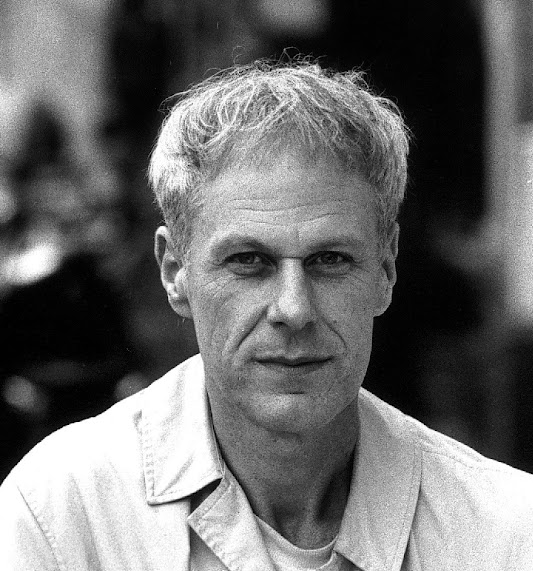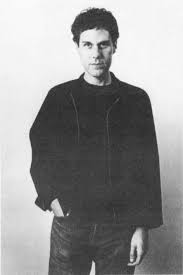THREE POEMS
by youngyu chen
ARTICULATION OF SOLACE FOR W
We are mothering ourselves. We are articulating solace for each other. We are trying
to not fall in love. Write love poems
to not fall in love.
The faultline between the language of feeling and the language of catastrophe? We find
it. Our common language. Our white world. We are trying
to write close to it. Even closer. Closeness
changes. Every poem was once impossible.
Medieval torture devices. Phalansteries. That’s when it mattered. That’s when you
wrote it.
Your father’s car speeds up the mountain like an unsent letter and you see someone
dead
in your dream when he is still alive outside it, watching Kurosawa for you. Aliveness
changes. The kind
of violence that can be taken back. The room
where someone not deadly realized they could care for you and didn’t. Or did. Now you
imagine it emptied. The kitchen
without a sink, windswept, glazed emerald-gold.
You could picture solace only by bright walls, you said. By, not in. A nearness.
We were listening to Arca together.
We were dreaming about an apartment in the Mesozoic. A meadow on Neptune.
Thinking. This relationship. Between the cold pomegranates on the table and the
porcelain bowl that couldn’t break apart one morning. Solace. I
wanted islands instead of worlds. I wanted a new kind of ice. One to hold on to, lying
in bed at noon. Bitter citrus grafting
like lightning onto my neck so I could be orchards as well. As well
as seeds
of thunderstorms.
What’s the point of time if we’re never out of it, knocking at your door, in landfall, in
someone else’s house.
I wanted we, in the second person. I wanted unimaginable solace, in the second person.
I wanted terrifying friends
to love me. You,
carrying away gorgeous bags of treasure every time we meet. Deadlight. Clearly we
were not who we were. Clearly we were not dead. We were not
mistaken. I wanted to look exactly like you.
(after Jenny Hval)
*
HERZZEIT
I dreamt of my poems grinding your poems into nothingness. I dreamt I read a poem by
you every day for a year and no one I love died that year. The phone
was ringing. The envelope smelled like wild horses. You were about to send it.
Tell me the curtain in front of our window has burnt off again and people are watching
us from the street. Turn
on the light in the castle and close their eyes. We don’t know.
And that not knowing loves us. A walk by the Seine. A wall covered in jewels and
rose powder. The poem
keeps getting longer the longer we read.
Part of being-in-relation always belongs to other relations. To cursed futures, rare earth
metals, tremblement. Which is why
I want mine to explode. Be
unreadable with me. Unwritable. Be almost unlivable. Faces flat on the kitchen floor at
dawn. Do not let even one
single image of tenderness go to waste.
In every house we lived together the floorboards are rotting, rippling. Ethics
means this poem is possible even if it isn’t innocent. Even if we were. Unless you were
me
you were crouching by the bathroom’s sharpened mirror. You were impossible,
bitter, biting your tongue. You were cutting out my favourite words from the common
language until the language ended. We eat castles in thin slices, remembrance.
After resistance is
fabulation. Is being
meticulous. The GREAT BITTER LOVE. I would have loved you. I would have
loved to you.
(for + after the letters between Ingeborg Bachmann and Paul Celan, 1948-1967)
*
POMEGRANATE SEASON
Who has not asked himself at some time or other: am I a monster or is this what it means to be a person?
Wrote Clarice Lispector.
I was scanning her book for you. I was tearing it apart in the photocopier.
S visits me in Boston. In the poem we write, trading lines, I ask her about the hail in
Tuscany. Knowing she was never there. What
were you like when you were young? This winter I drive to New York and the city is not there.
Meaning, there is literally not a single building there, not a single archive, a single
frozen shutter, I stay
all week in V’s empty apartment in Queens. When I walk past her mirror my face
keeps reflecting in front of me. Like something I could catch. Those are the moments
when I can feel something dissolving
inside me, something important, something that becomes even more important as it
dissolves. A constellation,
of flashes. Those
//
are years as well. Years I give to you.
This year, all year, never have I wanted more to wear necklaces inside necklaces. Never
have I wanted more to just think and study on the windy carpet. Never
have I been less able to.
Thinking, since we are in a room with four walls, does this mean each wall is a chamber
of the heart. Does this mean it’s not a nightmare. All year
I was thinking of J’s apartment back in Ithaca. But filled with rainforest and Christmas
lights. Satin blouses. We can barely see it but everyone they love
is climbing through the trees. We will not catch any of them. Like snow on the sun, at
night. Like, I wanted to explain to J: it isn’t
an image of disappearance. Of sleeping alone in the kitchen window. I would not
imagine disappearance in a single
place you love.
A, who I loved so long ago, texts me all of a sudden. I miss you. It’s been two years. It’s
been a kind of reaching. The spaceship we once talked about, from SOLARIS, flooding with hail, has been crashing
//
through every draft of every text he’s ever sent. Like
a reason.
Will we ever live in a house together. Will we ever shower each other upside-down, radiant with hurry? Will we?, Will we ever?, though I know this is the only thing the word “house”
could ever mean. I was looking for you. You. Not
the you of this poem. Not any of the yous of the poem. The you I sneak away with while
the poem descends into underworlds, eating pollen and seams. Hailstorm,
while I stare at my own face in the mirrors of friends, trying to map out the part
for the moon and the part for the bonfires. La Luna e i Falò. The part for life and the
part for the secret life. For world and for loneliness. Katabasis — it’s taken me
so long to put this poem together. You wouldn’t believe me. I’m trying
so hard to look for you without using you at all. Using
only the positions and momentums of all the other people I love, not the rain pouring
through their joint collar like
two doors into the dream.
It’s an arid season. It’s an overland. It’s not a nightmare. It’s not a memory. Which
//
means it’s real. You can touch it when I look away. I can see how the dark folds in half
beside you. It’s a different texture. A different shirt I have to sew through. The diagonal light,
in vertical furrows. Of course I can barely remember your face
before I remember your face.
ABOUT THE CONTRIBUTOR
is a poet based in Cambridge, MA, where they are studying for a PhD in Film and Visual Studies at Harvard. Recent work has appeared in journals including
NASHVILLE REVIEW and
POETRY NORTHWEST. They were born in Beijing and grew up in East Tennessee
MAY 2021










